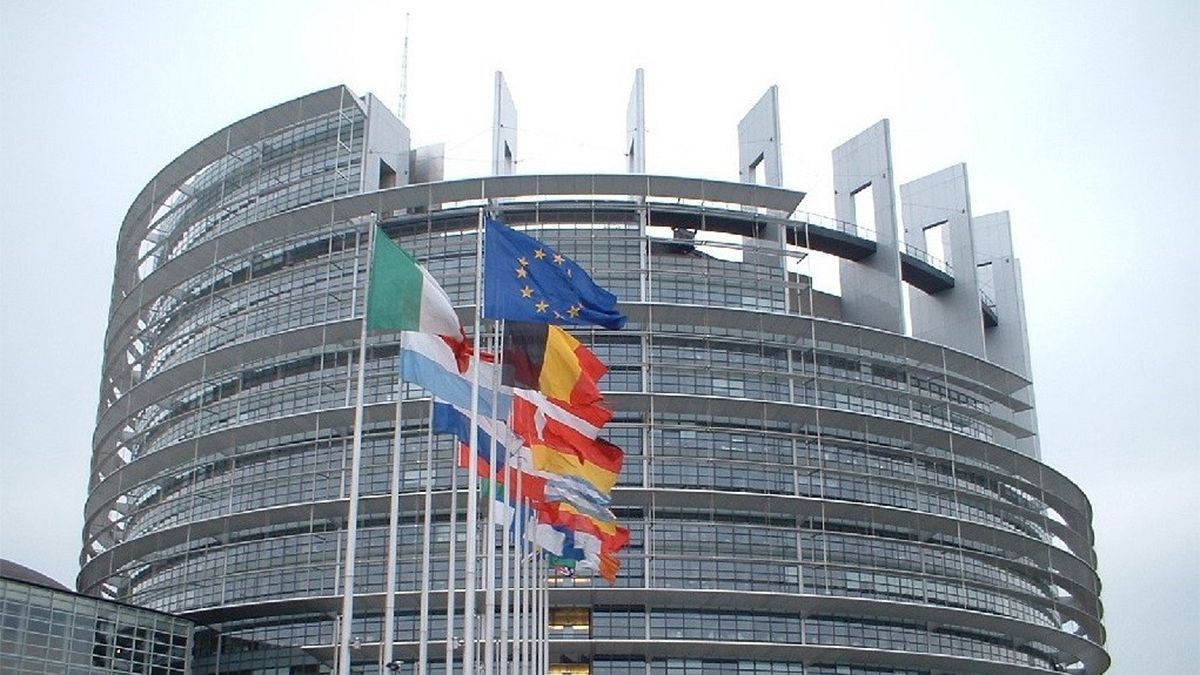“What if we granted European citizenship to refugees?
“What if we granted European citizenship to refugees?” This concluding question brought thunderous applause for Giuseppe Guerini, a Democratic Party Italian MP at the 6th forum for social policy in Milan.
What if…? The question hangs in the air, evoking a new and different order where the current rules for hosting and integrating refugees coming to Europe are turned completely on their head. Where the EU is struggling to stay together and where integration strategies remain inefficient and disconnected, where tensions remain high and where walls – physical and mental – are being proposed and built, such a drastic measure might be necessary.
Could we open borders and make refugees the first, real “citizens of Europe”, ignoring national borders to try to change the destiny of a Union that risks being held back by populist and xenophobic movements? Would it be a viable and beneficial solution? How would it be regulated and whom should it include? What would be the problems?
Three experts reflect on these questions and suggest ideas for integration: Matteo Villa, Research Fellow at ISPI, the Institute for the Study of International Politics based in Milan; Maurizio Ambrosini, professor of Sociology of Migrations at the State University of Milan and editorial Director of the scientific journal “Migrant Worlds”; and Ennio Codini, Head of the Legislative department of the ISMU Foundation for the Study of Multiculturalism of Milan.
 Matteo Villa, Maurizio Ambrosini, Ennio Codini
Matteo Villa, Maurizio Ambrosini, Ennio Codini
What do you think of the idea of granting European citizenship to migrants?
Villa: To think of directly granting a European citizenship to asylum seekers seems to me a very nice thing to say, but very far from reality. In fact, there is not even one [a European citizenship] to start with; we ourselves are national citizens who have some rights on a European level, which can be very similar to each other but also somehow different. I believe that, empathetically speaking, it is right to host these people, but granting them citizenship on the spot appears to be an excessively rushed measure, considering that half of the time Italy would be required by law to expel these people from the country, even though this doesn’t happen in practice. There are already separate rights for those who are protected more and those who are protected less: refugees can become Italian citizens after 5 years instead of 10, the way it is for all other foreigners, and I believe this is already good, but I still think that we can do more than what we are doing now.
Ambrosini: I understand the goal of this idea and I appreciate it, but we need to understand what we mean by citizenship, because it brings something very important along with it: the right to vote. If we consider citizenship simply being an evocative term to state that we want to protect these people, I agree with it. But granting citizenship to an asylum seeker or a refugee means to put them before all the others who wait for 10 years before they get citizenship, and we give them the right to vote for our institutions, even if they are only European ones. I am afraid this is a statement, like many others, which is basically symbolic: we would be seeking a form of citizenship that doesn’t cost much, but that doesn’t provide substantial rights either. I believe we should be more down-to-earth and work for substantial rights and for the serious support of refugees and asylum seekers, leaving citizenship where it is, as the goal of a path, which hopefully will become shorter for everybody.
Codini: I feel that when speaking of European citizenship for refugees we can refer to two different things: either freedom of movement – the same citizens around the Union already benefit from – or having asylum seekers taken care of by the European Union, instead of the single Member States, so the EU would take responsibility for the entire management of these people, with all the related duties, regulations, organization and costs. The first idea sounds doable, I believe, but only for those who have obtained refugee status, not for asylum seekers. They would be able to settle down where there are the best opportunities and, also from the point of view of the State, these people would be distributed in the best way. Referring to the second idea, it would be a realistic answer, because people in fact do not really seek to come to, let’s say, Italy or France specifically, but to reach Europe. This would also guarantee homogeneity and the same type of hosting. On a political level, though, it would represent a rush forward: sometimes these ideas are effective, but considering the current situation and the state of the EU today, I see it as a bit of a pipe dream.
What aspects of the current situation could be improved?
Villa: A big problem lies in the fact that asylum law is applied differently around the EU and it is legislated in national terms: in Hungary, for instance, a Syrian migrant has over 90% chance of having their asylum request rejected, whereas in Italy they have over 90% chance of having it accepted. Proposals to create a European agency for asylum to harmonize the process have drifted away, but I believe that we should keep working in that direction, be brave and convince ourselves that some shared norms that can be applied uniformly are needed in Europe. Moreover, according to the Dublin regulation, the State where the migrants arrive first is obliged to evaluate the requests, and asylum seekers are not allowed to circulate freely in Europe – this generating a lot of pressure, because people are forced to stay in the country until they earn citizenship. We are now aware that these rules should be changed, but many States are opposed to it. So, from a regulatory point of view we should, on one hand, reform the law and apply it homogenously, and on the other hand change it to find a way to redistribute these people.
Ambrosini: In Italy, the problem is that when someone receives the “refugee card” they earn the legal right to be in the country, but they do not receive any substantial support: because they do not have a right to be hosted in the migrant reception centres anymore, they end up in the street. In the end, a migrant who needs medical treatment does not go to a EU office to receive it, but to the hospital, and these sites are managed by the national authorities. To think of a set of rights as separate from the national system is dangerous, because it may only be symbolic, so we should not fall into the trap of granting European rights with no substance: let’s give them fewer rights, but substantial, local, and instantly available ones.
What steps need to be taken to increase the reception and integration of refugees?
Villa: In terms of citizenship every State has different rules, so it is difficult to take common steps. In any case, apart from citizenship, the process for which can be very slow, there are many things that we can do to host, integrate and protect these people. We need to safeguard the Schengen area and our own freedom of movement, which is now under threat, and we need to come up with integration plans for these people, which are already present in Nordic countries, despite the ups and downs, but which provide work inclusion, training and education services for minors. I believe that in Italy the proposal of the Home Office minister Minniti for an integration plan, which should be presented in May or June, is the way to go. We need a single instrument, money, and not to leave the local administrations alone to deal with it, because now everyone acts as best they can, and they integrate people depending on the resources they have at their disposal. Immigration is a phenomenon that needs to be addressed, and when this happens it can be beneficial.
Ambrosini: We need to get away from a symbolic rhetoric made up of empty announcements and instead we need to verify and grant rights that are real and available, and create pathways for language learning, employment and healthcare. This is the substantial citizenship that we need to develop and reinforce: education, health services, access to the job market, active work policy, professional training, and an opportunity to take part into the life of the country through social activities.
Codini: What can be done to move towards citizenship is to create the necessary conditions for it: a realistic idea would be to allow freedom of movement to those who have a refugee status and also gradually increase the EU budget dedicated to migrant management in every State, because it is expensive. Furthermore, it would be necessary to rework the guidelines for aid in the various States, creating a joint model, because there isn’t one yet. I believe these are the most realistic proposals.
Story and interviews contributed by Irene Dominioni
